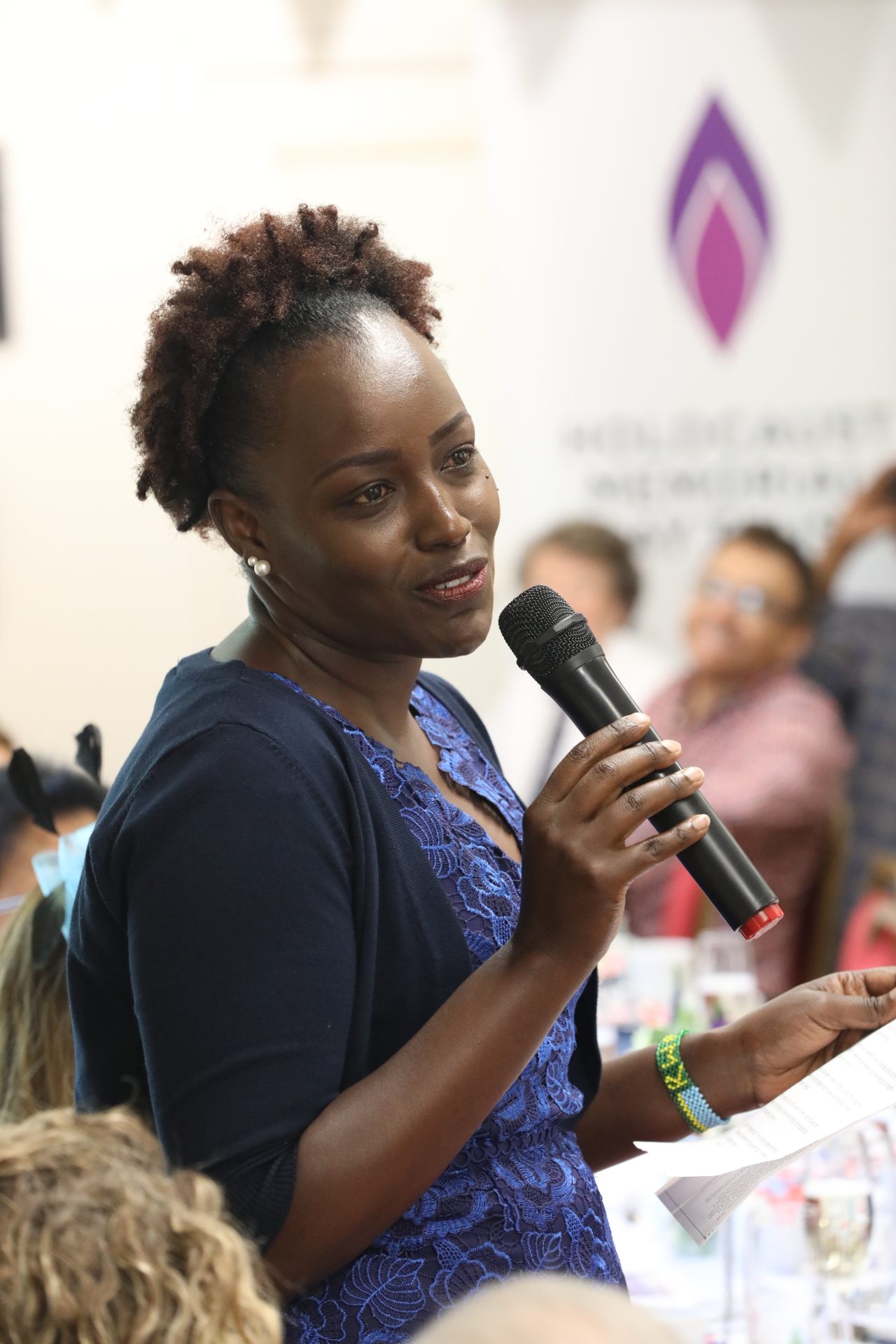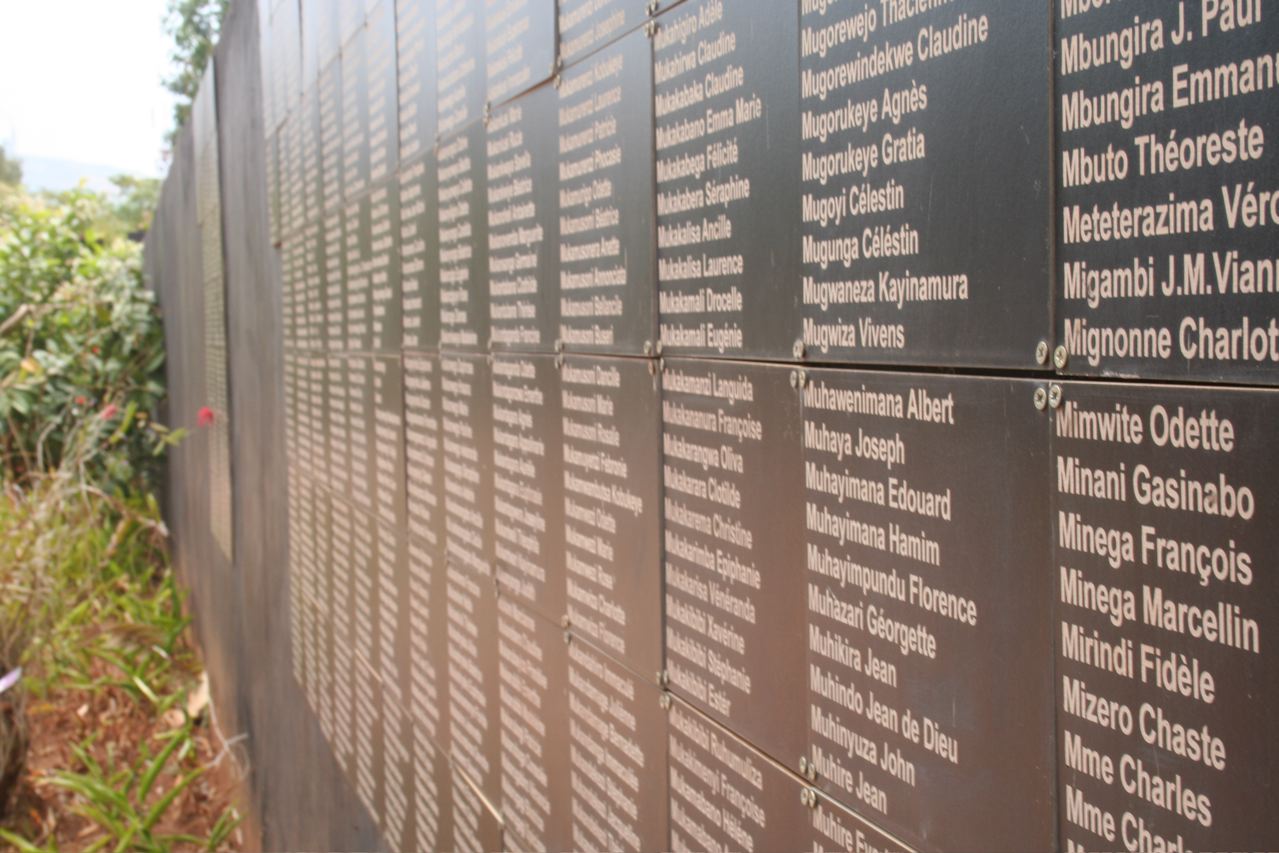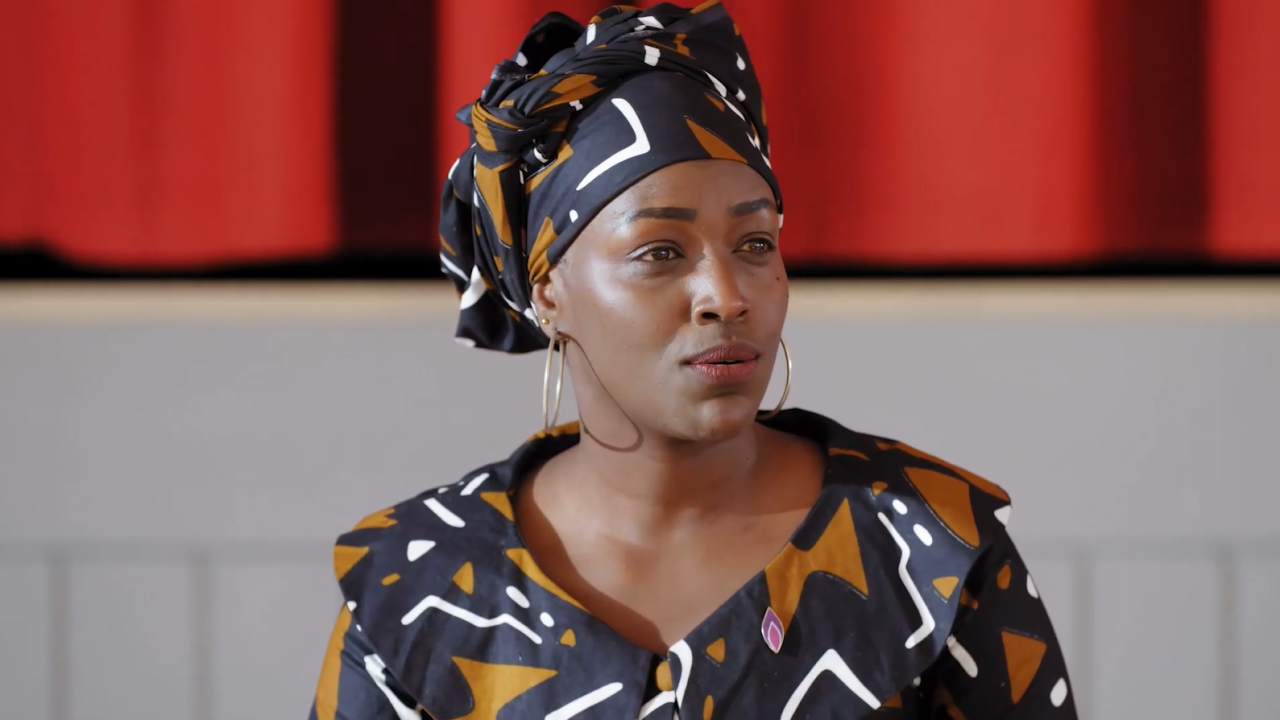
Antoinette Mutabazi
Antoinette Mutabazi is a child survivor of the 1994 genocide against the Tutsi in Rwanda. She endured a harrowing 90-day period, hiding from the killers who murdered her mother, two young brothers, and dozens of other relatives.
I did not want to die but at that moment, I was dead inside.
Content Warning: This life story contains details that may be distressing. Reader discretion is advised. If you would like any support or further information please see this page.
By Antoinette Mutabazi
I was barely 12 years old when I survived the 1994 genocide against the Tutsi in Rwanda. But my mother, two brothers, and 80 other relatives were murdered. During that traumatic period spanning over 90 days, I witnessed unimaginable cruelty and violence – people beheaded, others brutally mutilated, and some gunned down.
Before the genocide, all was well, and I enjoyed a normal, happy childhood. My parents did not have much, but we never went without food or clothes. As the only girl in the family, my dad treated me like a princess! Growing up in a loving home, I was shielded from the tribal tensions that simmered between Tutsis and Hutus.
However, things changed the day my primary school teacher inquired about my tribal background. He did not hide his contempt for Tutsis. I faced discrimination and was often called a cockroach, a despised insect in my community. Although my parents assured me that we were all created equal, this dehumanisation had a huge impact on my self-esteem: I felt vulnerable and hated going to school.
Evening that upended my childhood
There are times when I struggle to put into words the things I experienced during the genocide, but I vividly remember the evening that turned my childhood upside down. On 6 April 1994, the plane carrying President Juvenal Habyarimana, a Hutu, was shot down as it prepared to land in the capital Kigali. The president and everyone onboard died. That incident is widely recognised as the catalyst for the genocide as Hutus blamed Tutsis for Habyarimana’s demise.
As we watched the news on TV that evening, my father predicted that horrible things would happen to Tutsis. Sadly, he was right. Within hours, the killing started, and my father suggested that we go into hiding individually, rather than as a group, to reduce the risk of our entire family being targeted at once. We split up and took different paths, hoping to reunite eventually. Little did I know that I would spend 90 terrifying days in hiding, seeing things that no child should ever have to encounter.
The queue of death
I cheated death several times, but there is one incident that continues to haunt me even now: I found myself among a group of Tutsis lined up to be beheaded by the Hutu militia and as the queue got shorter before my eyes, I said my last prayer. I was ready to die. If you had money to give to the killers, they would shoot you; if you had no money, they would cut your head off with a machete.
However, with just three people ahead of me, the killers were suddenly distracted by someone shouting that a bank nearby had been broken into. Instantly, they abandoned the ‘queue of death’ and ran towards the bank, giving us the opportunity to flee and hide. I am often asked how I felt as I awaited my turn to be killed. I was numb. I did not want to die but at that moment, I was dead inside.
One day, I came across dogs feeding on a human corpse, an image that remains indelibly etched in my memory. Dogs are highly regarded as pets, but the sight of them triggers distressing memories for me. Another time, I stumbled upon an infant nursing on its deceased mother’s breast. As I stood over that child, I froze, uncertain of how to respond. A million thoughts raced through my mind, and I felt empty as I walked away. I often wonder what happened to that child.
Covered in excrement
Another time, I hid in a disused toilet within earshot of Hutu killers. The toilet, a simple hole in the ground with no flushing system, was no longer in use because it was overflowing with excrement. You can imagine the stench emanating from that tiny cubicle, but that was the least of my worries.
I could hear the Hutu militia boasting and joking about the number of Tutsi women they had either raped or killed. I was paralysed by fear and silently prayed that they would not find me. Thankfully, when dusk fell, they moved somewhere else, and I emerged from my hiding place, partly covered in excrement.
As I mentioned earlier, my two brothers were murdered during the genocide. Emile was six years old when a grenade exploded in his face. I held him in my arms as he gasped for air and asked for water to drink. I had no option but to abandon his body and run to save my own life. At just two years old, my other brother, alongside 50 other children, was discovered by the killers, who torched their hiding place.
Day of liberation
Some emotions are simply beyond the reach of words, and the day I realised that the killing was finally over brought conflicting feelings of relief and deep sadness. As the Rwanda Patriotic Forces escorted us to a protection centre, I was tearfully relieved, yet overwhelmed by the realisation that I would never lay eyes on my mother and two brothers again. My father had survived.
I am aware that it takes time to heal from such trauma, but I have learned to forgive those who murdered my loved ones. Many who hear about my experiences often consider it a testament to the resilience of the human spirit and its capacity to endure anguish. Although I was a child, I was determined to survive and tell the story of what happened. To this day, I have no idea where that resolve came from.
As a genocide survivor, I feel compelled to share what happened, no matter how painful or traumatic. I am thankful to the Holocaust Memorial Day Trust for giving me the platform to educate people about the dangers of prejudice and intolerance. I am actively engaged with a Christian charity, Youth With A Mission, which promotes peace and reconciliation, a cause that is dear to my heart.


